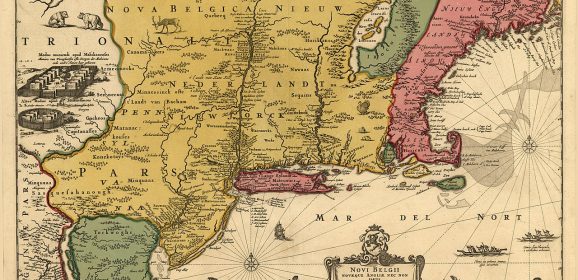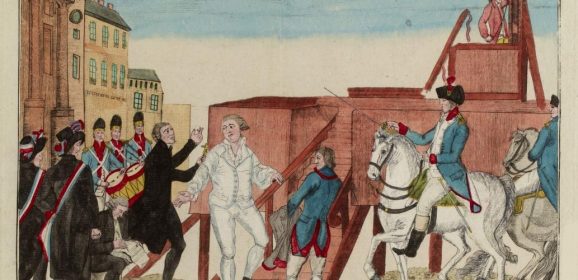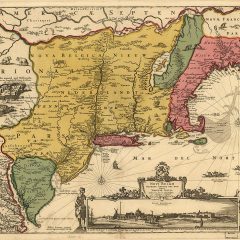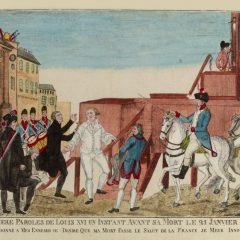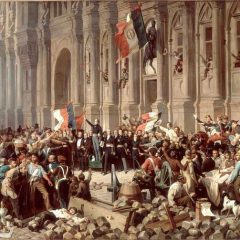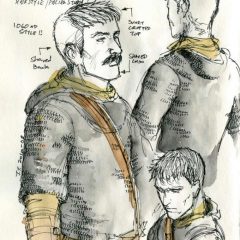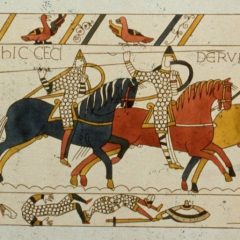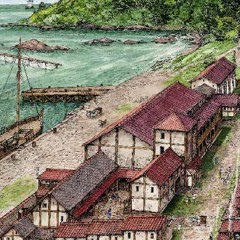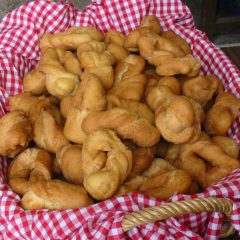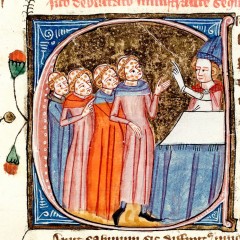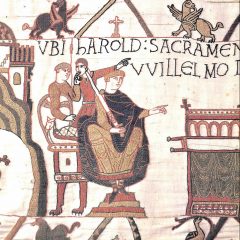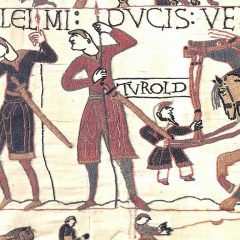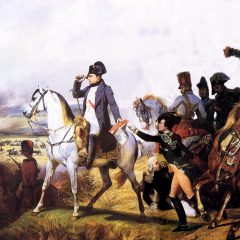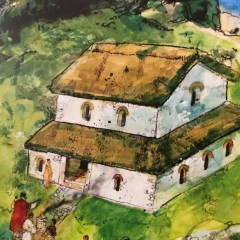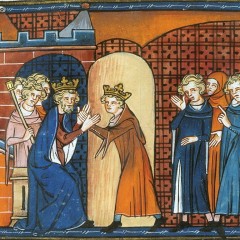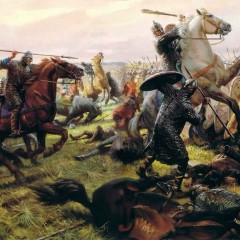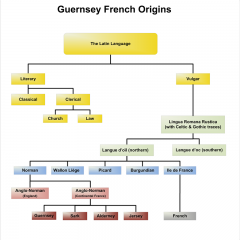Guernsey and the French Revolution
The years following the French Revolution in 1789 were dramatic in the history of the island. Many emigres found refuge in Guernsey and the island even ended up as a centre for a spy network operating against the newly formed republic. In this article we look at this pivotal period in Guernsey history.
How Has The Bayeux Tapestry Survived for So Long ?
The Bayeux Tapestry tells one of the most famous stories in British history. It has survived revolution, war, clumsy restorations and even ‘kidnapping’ and has been threatened with destruction at every turn of these events. So how has it survived for nearly 1,000 years?
Why Did the Normans have such Odd Haircuts?
Maybe you didn’t even know they had “odd” haircuts – but even by today’s liberal standards they were decidedly “odd”. In this article we look at the (probable) reasons why.
Who Made the Bayeux Tapestry ?
The Bayeux Tapestry tells one of the most famous stories in British history – that of the Norman Conquest of England in 1066, particularly the battle of Hastings, which took place on 14 October 1066. But who made the tapestry and how long did it take?
Guernsey Celts & Guernsey Romans – A Timeline
Since the 1980s there has been a veritable explosion of Archaeological evidence to suggest that Guernsey was very much a part of the Roman World. In this article we look at the interface between the Celtic Worlds and the Roman World in Guernsey and the channel Islands.
Yummy Scrummy – The Jersey Wonder
These delicious doughnut style treats, still popular at fairs and festivals in Jersey, are a time honoured recipe and well worth the calories!
The Black Death in the Channel Islands
Not the most pleasant of subjects but when the ‘great mortality’ as it was called struck the Channel Islands it left in its’ wake a scarred population, decimated in numbers and traumatised in the minds and bodies of all islanders.
The Normans – A Timeline
Guernsey and the Channel Islands were very much at the heart of the old Duchy of Normandy and then in 1066 we were propelled into the wider world when our Duke, William the Bastard defeated the English King Harold at Hastings. In this artilcle we outline some of the defining moments in the history of the Norman dynasty.
Secrets of The Bayeux Tapestry : Hidden Meanings & Gestures
The Bayeux Tapestry is an historical artifact that never fails to impress depicting as it does such a pivotal moment in British and Channel Island history, that of the invasion & conquest of England by William the Conqueror in 1066. But look closely and you will come across oddities that are hard to explain, mysterious characters, some named, some not, appear in the main body and borders. Add to that some of the cuirious rather theatrical gestures they appear to be making and there emerges a sense of mystery.
Why didn’t Napoleon Ever Invade the Channel Islands?
Given that Britain and France were at war almost permanently between 1792 and 1814, it does seem strange that Napoleon Bonaparte made no effort to occupy what were almost exclusively French-speaking islands just a few miles off the French coast.
Roman Jersey
Unlike Guernsey the Roman presence in Jersey is not so clear cut. In this article we look at some of the new emerging evidence for Roman ‘occupation’ in Jersey or ‘Andium’ as it was probably know by the Romans.
The Day King John Commited Murder and the Channel Islands lost a potential Duke
History can often turn on the actions of a single individual. April the 3rd 1203 was such a day when King John committed murder. If he hadn’t committed this heinous crime then the whole history of Guernsey and the Channels Island could have been radically different.
1066 and all that … the day the Channel Islands became part of England
On Sunday the 14th October 1066 ‘William the Bastard’, Duke of Normandy (andthe Channel Islands), invaded and defeated the Anglo Saxon king of England, so that henceforth the Bastard was to be forever known as William the Conqueror. In this article we look how at how he won at Hastings.
The Origins of Guernsey French and Other Channel Island Languages
Guernésiais, Auregnais, Jèrriais and Sercquiais – the local names for the French spoken in the respective islands – are direct descendants from the Norman French spoken at the time of the Conqueror. In this article we look at their ‘family tree’.

